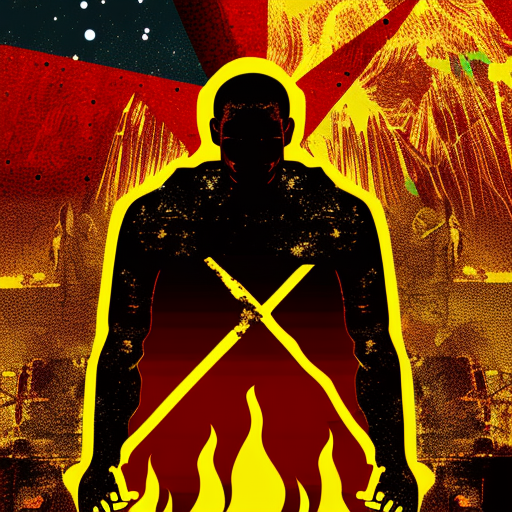The Fire Next Time: A Powerful Exploration of Race and Religion in America
In “The Fire Next Time,” James Baldwin delivers a searing and thought-provoking examination of race and religion in America during the civil rights movement. Through a collection of two essays, Baldwin explores the complexities of racial identity, the role of religion in perpetuating racism, and the urgent need for change. With his powerful and eloquent prose, Baldwin challenges readers to confront the deep-rooted prejudices that continue to divide society.
Racial Identity and the Struggle for Equality
Baldwin begins the book with the essay “My Dungeon Shook: Letter to My Nephew on the One Hundredth Anniversary of the Emancipation.” In this deeply personal letter, Baldwin addresses his young nephew, offering him guidance and insight into the realities of being a Black man in America. He reflects on the history of slavery and the ongoing struggle for racial equality, emphasizing the importance of self-love and resilience in the face of adversity. Baldwin’s words serve as a rallying cry for Black Americans to embrace their identity and fight for a more just society.
In the second essay, “Down at the Cross: Letter from a Region in My Mind,” Baldwin delves into his own experiences growing up in Harlem and his encounters with the Nation of Islam. He explores the complexities of racial identity and the ways in which society perpetuates divisions based on skin color. Baldwin reflects on the role of religion in shaping these divisions, criticizing the Nation of Islam’s separatist ideology while also acknowledging the appeal it holds for many marginalized individuals. Through his personal narrative, Baldwin highlights the need for unity and understanding in the fight against racism.
The Role of Religion in Perpetuating Racism
Throughout “The Fire Next Time,” Baldwin examines the influence of religion on racial dynamics in America. He criticizes the hypocrisy of white Christian institutions that claim to preach love and equality while perpetuating racism and discrimination. Baldwin argues that religion has been used as a tool to justify and maintain the oppressive systems that marginalize Black people. He calls for a reevaluation of religious teachings and a rejection of the divisive ideologies that hinder progress towards racial equality.
Baldwin also explores the appeal of the Nation of Islam, particularly for Black individuals who have been marginalized and oppressed by white society. He acknowledges the sense of empowerment and identity that the Nation of Islam provides, but ultimately questions the effectiveness of its separatist ideology. Baldwin argues that true liberation can only be achieved through unity and understanding, rather than through the creation of further divisions.
The Urgent Need for Change
“The Fire Next Time” serves as a powerful call to action, urging readers to confront the deep-rooted prejudices that continue to divide society. Baldwin emphasizes the urgency of the civil rights movement and the need for immediate change. He warns that if society fails to address these issues, it risks facing a future filled with violence and destruction. Baldwin’s words resonate with a sense of urgency and demand that individuals take responsibility for dismantling the systems of oppression that perpetuate racism.
Key Takeaways:
- Racial identity and the struggle for equality are central themes in “The Fire Next Time.”
- Religion has played a significant role in perpetuating racism and division in America.
- Unity and understanding are essential in the fight against racism.
- The book serves as a call to action, emphasizing the urgent need for change.
“Love takes off masks that we fear we cannot live without and know we cannot live within.”
– James Baldwin
In “The Fire Next Time,” James Baldwin delivers a powerful and urgent message about race and religion in America. Through his personal experiences and insightful analysis, Baldwin challenges readers to confront their own prejudices and work towards a more just and equal society. This book remains a timeless and essential read, reminding us that the fight against racism is far from over.












